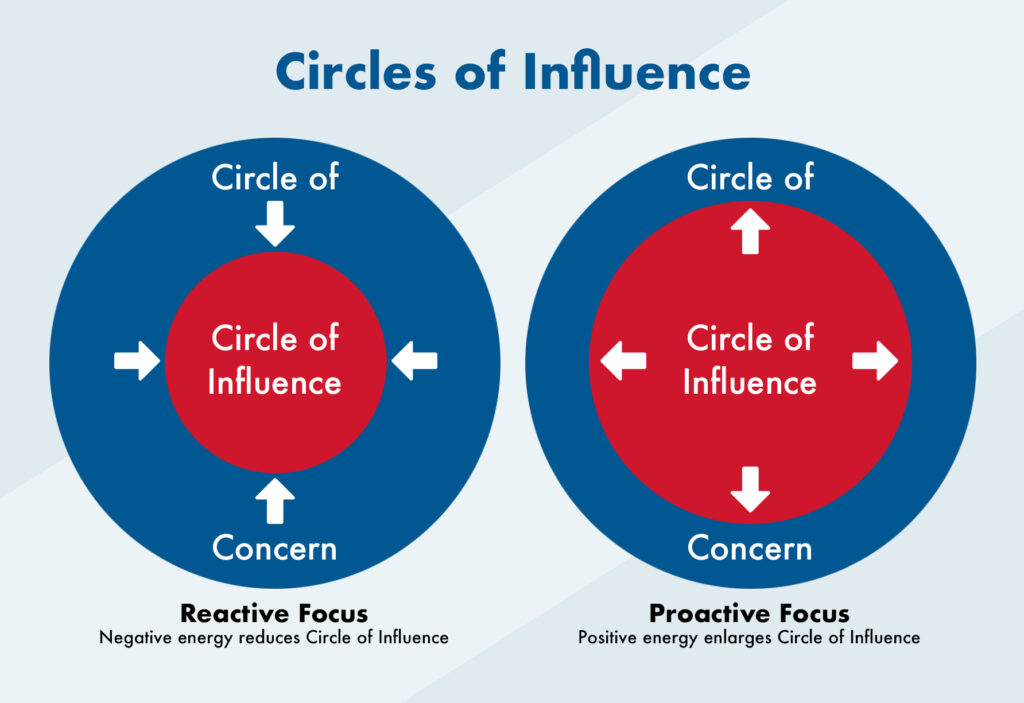A perfect storm is occurring, causing rising pressures for business owners. The cost of raw materials, energy and fuel are increasing. Therefore, some customers feel nervous about spending as they’re uncertain how the current climate will impact the money in their pockets. Despite these challenges, your business can still THRIVE…
Six things to do to ensure you THRIVE during challenging times
Number 1 – Go through your costs
The initial response during challenging times is to consider how to reduce costs. Start by going through your outgoings and assess if there are any unnecessary expenses you can cut or reduce. To do this, ask yourself – is it essential or a ‘nice to have’?
If something is a ‘nice to have’, consider what you can do to reduce it. For example, if you have your office cleaned, do you need the office cleaned as frequently? Could you clean the office yourself to save costs?
Should you go one step further and consider if you need the office? Could you rent or subcontract some of the space and utilise hybrid working?
Shift your mindset by asking yourself these questions to identify ways to reduce costs.
Additionally, if you’re keen to cut back on spending, work through your paid subscriptions and consider – do they help you generate leads? If the answer is no, you must consider if it is worth continuing to invest in them. Also set time aside to review your marketing activities. Whilst marketing is essential, it’s important to investigate which activities are making a good return on investment by generating leads and which have a poor conversion rate. This will allow you to identify what you should continue to invest in moving forward.
It’s worth remembering that although cutting costs is the natural first place to start, you can waste hours looking at ways to save a few pounds here or there. What if you spend that time and energy trying to take on new clients/customers?
Number 2 – Identify quick marketing wins
You should consider what low-cost quick wins you can implement into your marketing strategy. We suggest starting by looking for opportunities to cross-sell to your existing clients. To do this, create a Magic Matrix, which will allow you to identify what products/services you sell to which clients/customers and highlight opportunities and gaps where you could be selling more/ other products to them.
After you’ve explored the opportunities to upsell and cross sell to your existing clients/customers and ensured you’re delivering a supreme level of service, ask them for referrals. So that when you ask, they’re enthusiastic about recommending you to others.
Number 3 – Make ‘Happy Calls’
Reach out to people who know, like and trust you. These could be your lapsed clients/customers or people who fell out of your sales funnel (because it wasn’t the right time/right fit/product at the time). Get in contact with them with a ‘happy call’. Ask how they are and how business is going and enjoy the conversation. Chances are, they will ask you how your business is going, so this is your opportunity to tell them stories of how you’re helping people like them in their situation. Give specific examples in the form of success stories and testimonials to provide social proof. Important to note – don’t go into these calls with the mindset that you must sell to them, focus on catching up and seeing if you can help them achieve their goals.
Number 4 – Adapt your offering
One of the things we’ve learned during the pandemic is the importance of adapting in the face of adversity. When times are challenging, and your clients’/customers’ wants and needs are changing due to external factors, you must look for creative new ways to help them.
An example of this is how we supported Salute at The White Swan during the Covid lockdowns. Instead of shutting down completely, Justine and the team worked hard to maintain a positive mindset and find creative solutions. As Salute couldn’t open and trade as usual, they created a simpler takeaway offering which allowed people to enjoy delicious dishes at home. Then, as restrictions eased and the restaurant was permitted to reopen, the management team carefully considered the restaurant’s opening hours. To save costs, they chose not to reopen seven days a week as it would have been difficult to staff. Instead, they changed their opening hours to keep overheads low and focus on their busy times. Throughout all the changes, Salute were continuously agile, so when Eat Out to Help Out was extended, they opened another day.
Number 5 – Invest in your people
Investing in your people doesn’t just mean financial investment. There are many ways you can show your appreciation without spending a penny.
Give your team your time and focus. Book regular 121 meetings to check in with them, understand their ambitions and make plans to achieve these. This will demonstrate that you’re invested in their development and willing to support them.
Setting goals is a fantastic motivational strategy; they’ll feel a sense of achievement when they’ve reached their targets. Also, when you’re involved and pay attention to their progress, they’ll feel noticed and more appreciated, increasing overall job satisfaction.
Furthermore, you can invest in your team by having additional 121 sessions bi-annually, annually, or as frequently as needed to support their aspirations in which you encourage them to make a continuous professional development (CPD) plan and offer training. There are plenty of valuable free/cheap training resources available which you should make your team aware of to encourage them to develop their skills and get to where they’d like to be.
Number 6 – Adopt a positive mindset
A positive mindset is essential for coping with the rising pressures you face as when you think positively, you’re more likely to achieve positive outcomes. In these times, we often refer to Covey’s Circles of Influence…
We all have our Circle of Concern. These are things that play on your mind – this can include global warming, the economy, societal attitudes, etc. The actual list will depend on you, but you must understand that there will be little you can do to solve these things as they are outside your ‘Circle of Influence’. Instead, focus your energy on your ‘Circle of Influence’’, i.e., what you can control/affect. By focusing on what you can control, you’ll be able to make effective changes. As you do this, your Circle of Influence will increase.
As Covey so eloquently puts it, “reactive people find their Circle of Influence shrinks, while proactive people find it increases.”

Do you need help coping with the rising pressures?
As a business owner the responsibility falls on your shoulders when times are challenging, and you alone must cope with the rising pressures. But this needn’t be the case; switch off the news, be proactive and focus on what you can control. If you need help shifting your focus to ensure you and your business THRIVE during challenging times, get in touch with Bill.




